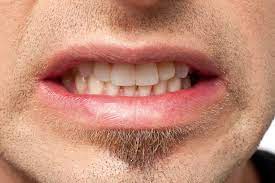Teeth grinding, also known as bruxism, is a common condition that affects many individuals, often without them even realizing it. This involuntary habit can occur during the day or night and is frequently linked to stress, anxiety, or sleep disorders. If left untreated, bruxism can lead to serious dental issues, including worn-down enamel, jaw pain, and even cracked teeth. To find effective Teeth Grinding relief, it's essential to understand the root cause and take proactive measures to manage stress and protect your teeth.
Signs and Symptoms of Teeth Grinding
Many people may not be aware they grind their teeth until symptoms appear. Some common indicators include headaches, earaches, jaw soreness, and increased tooth sensitivity. In severe cases, teeth may become chipped or flattened due to the constant pressure. Observing these signs early on can help you take immediate action. Seeking professional dental advice can aid in diagnosing bruxism and implementing preventive solutions before significant damage occurs.
Managing Stress to Reduce Teeth Grinding:
Since stress is a leading cause of teeth grinding, adopting relaxation techniques is crucial for relief. Practices such as meditation, deep breathing exercises, and yoga can help lower stress levels and promote overall well-being. Additionally, establishing a bedtime routine that includes muscle relaxation techniques can minimize nighttime grinding. If anxiety is persistent, consulting a therapist or stress management expert may provide further guidance on coping mechanisms to reduce tension effectively.
Protecting Teeth from Grinding Damage:
Wearing a nightguard is one of the most effective ways to protect teeth from grinding damage. These dental appliances create a barrier that prevents direct contact between the upper and lower teeth, reducing wear and tear. Custom-made mouthguards, available through dental professionals, offer the best fit and comfort. Additionally, avoiding excessive caffeine and alcohol consumption can help decrease bruxism symptoms, as these substances can increase muscle activity and jaw clenching.
Lifestyle Changes for Long-Term Teeth Grinding Relief:
Incorporating healthy habits into your daily routine can significantly reduce the severity of bruxism. Maintaining a balanced diet rich in magnesium and calcium can promote muscle relaxation and prevent jaw tension. Avoiding gum chewing and excessive jaw movements can also help alleviate strain on the muscles. Additionally, staying hydrated is crucial, as dehydration can lead to muscle cramps, including those in the jaw. Making these simple yet effective lifestyle modifications can contribute to long-term teeth grinding relief.
Seeking Professional Help for Severe Cases:
If Teeth Grinding Treatment persists despite self-care efforts, consulting a dentist or healthcare provider is essential. A dentist can assess the extent of dental damage and recommend appropriate treatments such as orthodontic adjustments or muscle relaxants. In some cases, physical therapy or Botox injections may be suggested to relieve muscle tension. Addressing bruxism early can prevent complications and improve overall dental health, ensuring a pain-free and stress-free life.

